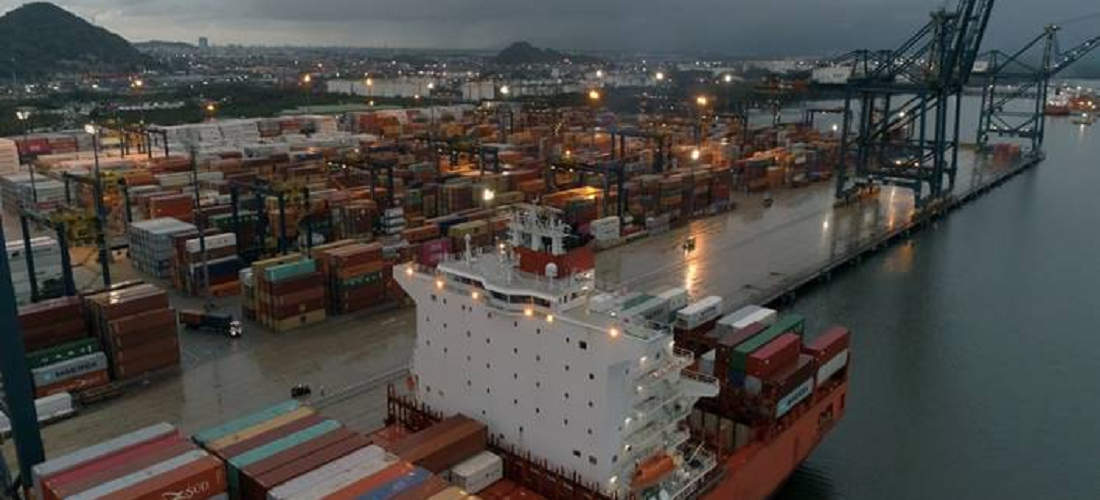
Brazilian port handling up 4.2% in 2020
Mar, 02, 2021 Posted by Ruth HollardWeek 202110
According to ANTAQ’s Statistics and Performance Evaluation Department, the national port sector (organized ports + authorized and leased terminals) handled 1.151 billion tons last year, a 4.2% growth compared to 2019. Terminals for private use (TUPs) handled 760 million tons. Organized ports, on the other hand, handled 391 million tons. According to the data, from 2010 to 2020, TUPs increased their handling by 40%. In the same period, organized ports improved their handling by 31.7%.
The data showed that 688.9 million tons of solid bulk were handled in 2020, an increase of 1.2%. Regarding liquid bulk, 289.5 million tons were handled, an increase of 14.8%. Container handling registered 118.2 million tons (+ 1.1%). Loose general cargo, on the other hand, handled 54.2 million tons in 2020, a decrease of 0.3% compared to 2019.
Ranking of Organized Ports and TUPs
Once again, Santos was the organized port that most handled cargo last year: 114.4 million tons. After Santos, the Port of Paranaguá (PR) handled 52.1 million tons. In the third position, Itaguaí (RJ) handled 45.7 million tons. Adding the authorized terminals, which form the port complex, to the Organized Port of Santos, there is a total movement of 141.7 million tons, a growth equivalent to 9.4%.
In relation to TUPs, the leader in handling was the Ponta da Madeira (MA) Maritime Terminal, with 191 million tons of iron ore handled, representing 16.6% of all cargo handled in Brazil. In the second position was the Angra dos Reis Waterway Terminal (RJ) which handled 60 million tons of crude petroleum oils. In the third position, the Tubarão Terminal (SC) handled 56 million tons, divided into iron ore (87%), Soy (7.4%), and Corn (2.1%).
Cargo
Iron ore was the cargo most handled by the port sector in 2020. In total, 356 million tons were handled. In the second position was Oil and Oil Products, with 262 million tons handled. In the third position were the containers, totaling 118.2 million tons (or 10.5 million TEU). In the fourth position was Soybeans, with 104.2 million tons handled.
In terms of cargo, liquid bulk grew 14.8% in relation to 2019, demonstrating the vigor of the pre-salt. Also of mention were exports of crude petroleum oils, which grew 18.8%.
“Commodities formed the goods that most affected Brazilian port handling: iron ore, soybeans, corn, and inputs for planting crops. These cargoes played a large role in handling growth. They did not suffer from Covid -19, as the export contracts are made in the long term, making the shipments of these goods continuous, even with the pandemic situation”, says the manager of ANTAQ’s Statistics and Performance Evaluation, Fernando Serra. “But liquid bulk – oil and oil products – grew most in Brazilian handling. With a 14.8% growth, they increased the value by 4.2%, observed in the general growth of cargo handling in Brazil. There was an increase in oil exports and in the pre-salt cabotage. None of these movements were subject to the problems caused by Covid-19”, he adds.
The executive also highlights the significant growth of the ports located in the so-called Arco Norte, where handling is increasingly increasing, causing internal freight to decrease, and, consequently, make the competitiveness in the international market more adequate to the volume of Brazilian production. “Also noteworthy is the significant growth observed in liquid bulk terminals, especially in those that handle oil, such as the exceptional growth of the T-Oil Terminal, located in Porto do Açu, which reached the mark of 29.6 million tons of cargo handled at its facilities in the last 5 years. Port of Santos also achieved great results, with a record in its annual handling. Despite a 10.9% drop in container handling, the port was able to diversify the goods handled there, increasing handling of soy and sugar by 28.6% and 82.7%, respectfully”, concludes Serra.
-
Ports and Terminals
Dec, 14, 2021
0
101 ships waiting for berth space at LA and Long Beach
-
Shipping
Nov, 18, 2019
0
Safmarine will cease to operate in Brazil and throughout the East Coast of South America
-
Ports and Terminals
Feb, 18, 2020
0
Localfrio restructures operations to compete in integrated logistics
-
Shipping
Apr, 27, 2021
0
Maersk doubles full-year profit amid ‘exceptional’ container market situation



